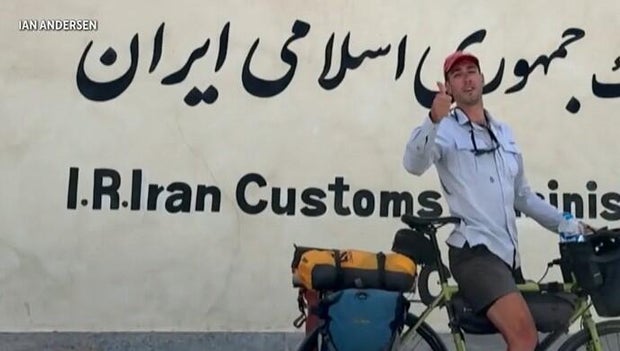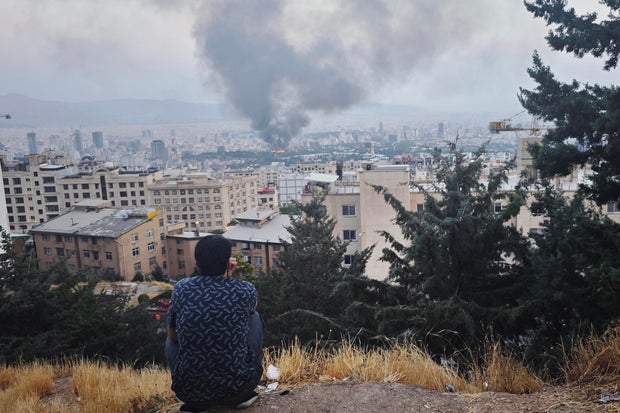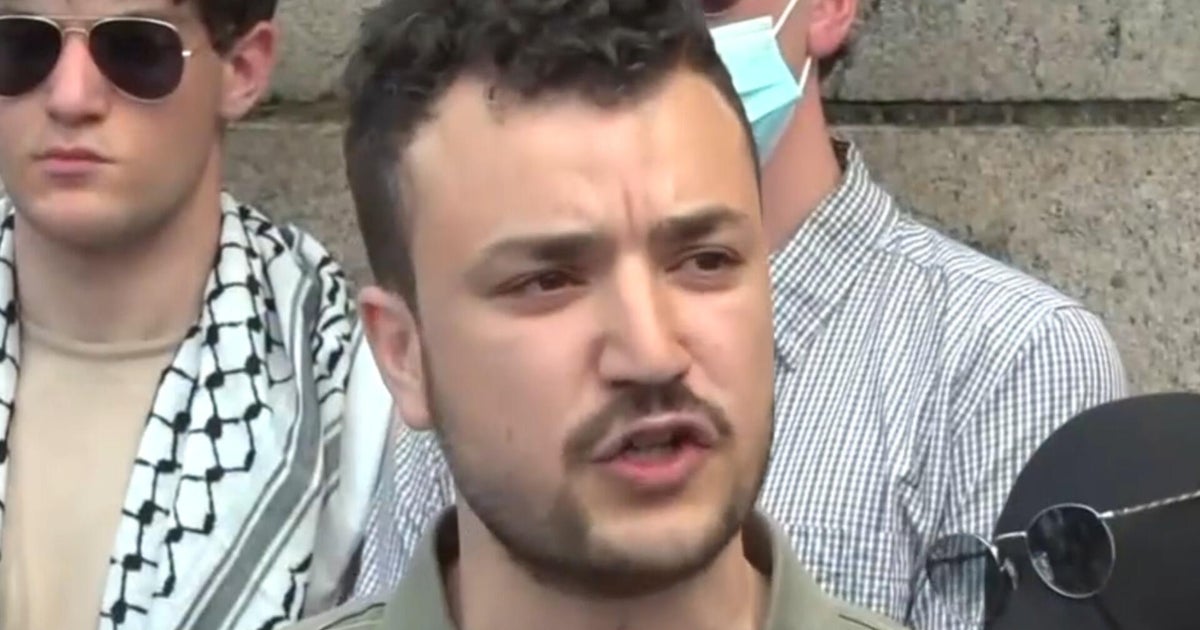Popping a champagne bottle on Portugal's Atlantic coast in February, 32-year-old American Ian Alexander set out to fulfill his dream of biking across all seven continents of the world. He planned to ride for 10 months, covering roughly 10,000 miles to reach his final destination of Japan.
He did not plan, however, for Israel to launch a war on Iran.
As he crossed into Iran on June 1, Alexander was filled with excitement, and anxiety.
"I was quite nervous. I was like, okay, now we're getting into some uncharted territory here," he told CBS News on Thursday from a hotel room in Azerbaijan's capital of Baku. "But I was immediately put at ease with so many positive experiences from people that I met on the road… and hospitality, generosity."
 American cyclist Ian Alexander is seen posing for a photo after clearing customs to enter Iran.
Ian Alexander
American cyclist Ian Alexander is seen posing for a photo after clearing customs to enter Iran.
Ian Alexander
He said he was "surprised daily" by kind, curious Iranians inviting him for tea or offering him food, even trying to pay for his meal at a restaurant.
On June 13, that changed, when Israel started bombing Iran's nuclear and military sites.
"Not any outward hostility, but I just kind of read people's body language and their facial expressions," said Alexander. "And I knew I was in quite a bit of danger, because people were seeing Israel and the U.S. as being quite tied together at that point, as the bombs kept falling and the missiles kept striking."
He and his local Iranian guide, Reza, decided to hunker down at a guesthouse about 45 miles north of Tehran, in a village called Harijan, for two days.
Reza, who Alexander said had become his friend, advised him to avoid telling people he was American, and to avoid talking to people at all if possible. But he said he slipped up, revealing his nationality to some local travelers who joined them at the hotel.
"They weren't happy about the fact that they were having to share a hotel with 'that American' that was there," said Alexander.
On June 15, Alexander heard an Israeli bomb explode in the distance. That same day he received an email from the U.S. State Department, advising him of options for Americans wishing to leave Iran, based on their current locations. He decided his best bet was an eight hour drive north, around the Caspian Sea, to reach Azerbaijan.
He and Reza were quickly caught up in a steady flow of dense traffic, as residents streamed out of Tehran. They passed gas stations with long lines of cars, and many military checkpoints.
"It was quite harrowing," he said. "The idea of maybe being pulled over at one of the military checkpoints."
 Smoke rises after an Israeli strike on a building used by the Islamic Republic of Iran News Network, part of Iran's state TV broadcaster, June 16, 2025 in Tehran, Iran.
Getty Images
Smoke rises after an Israeli strike on a building used by the Islamic Republic of Iran News Network, part of Iran's state TV broadcaster, June 16, 2025 in Tehran, Iran.
Getty Images
"Reza, my guide, had told me that he can no longer protect me, and that really rattled me, right? Cause, he's my guide. He's my Iranian guide, and very stable, sturdy, dependable guy. And he's like, 'All right, this is it. Like, you're in quite a bit of danger here. If we're stopped and the police suspect you of something, there's nothing I can do.'"
Alexander said he became "more and more at ease as we got closer," and they eventually made it without incident to Iran's border with Azerbaijan.
But the most nerve-wracking part of that final day was about to begin, as he was interviewed not once, but twice by Iranian officials - normal border police and then by Iran's Revolutionary Guard Corps.
For the second interview, he was pulled out of a crowd and taken into the backroom of a storage closet in a makeshift army barracks.
"That's where I was like, 'Okay, I've got a 50-50 chance of being taken either as a bargaining chip or for further questioning,'" he said. "Actually, the interview was like, less than a minute."
"I walked out back into the night to get my bicycle and then actually enter Azerbaijan, and I half expected them to call me back. I was like, 'Something's wrong here. Um, why, why was this so easy?' But they didn't, and I was able to enter Azerbaijan."
Clear of Iran's internet firewall, he was able to message his family in the U.S. before he checked into the first hotel he could find, and then sleep for 12 hours in relief and exhaustion.
Now safe as the Israel-Iran conflict drags on, Alexander said he thinks a lot about the possible spillover effect for anyone with a U.S. passport living and traveling overseas.
He said he registered his travel itinerary with the U.S. State Department's STEP program, which sends country-specific notifications and updates based on a traveler's movements. It's how he knew to head for Azerbaijan, and he urges all Americans traveling abroad to do the same.
Alexander also said if it were not for his Iranian guide, he might not have made it out of the country. He hopes to raise money for Reza and his family, who are still in Iran.
He also intends to carry on with his bike ride to Japan, to fulfil his dream of cycling all of the world's continents.
The Standoff with Iran More Ramy Inocencio






